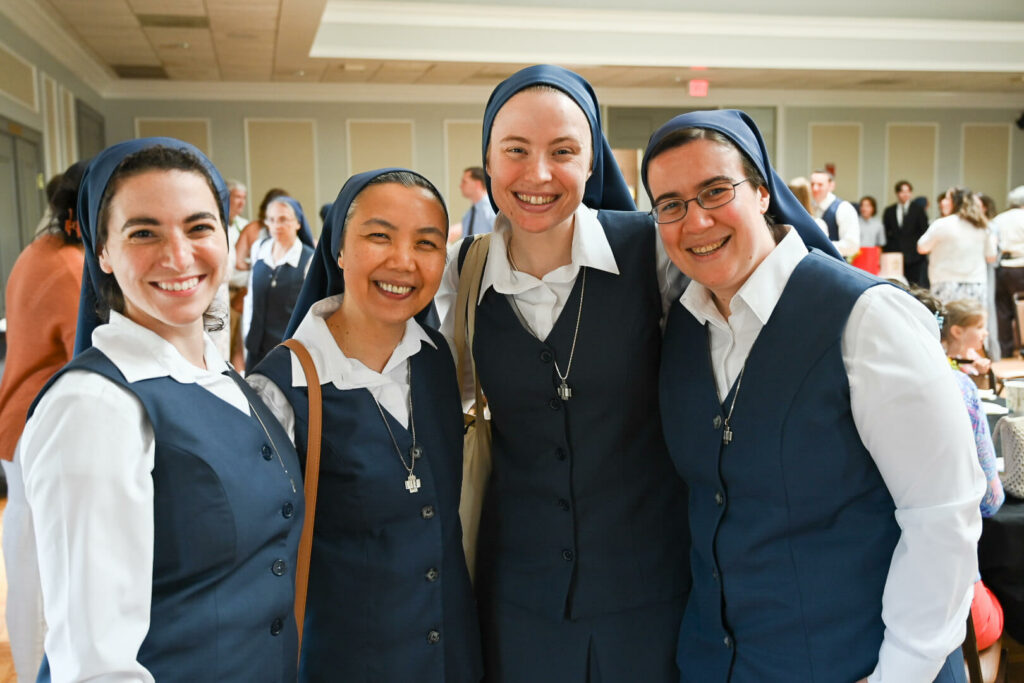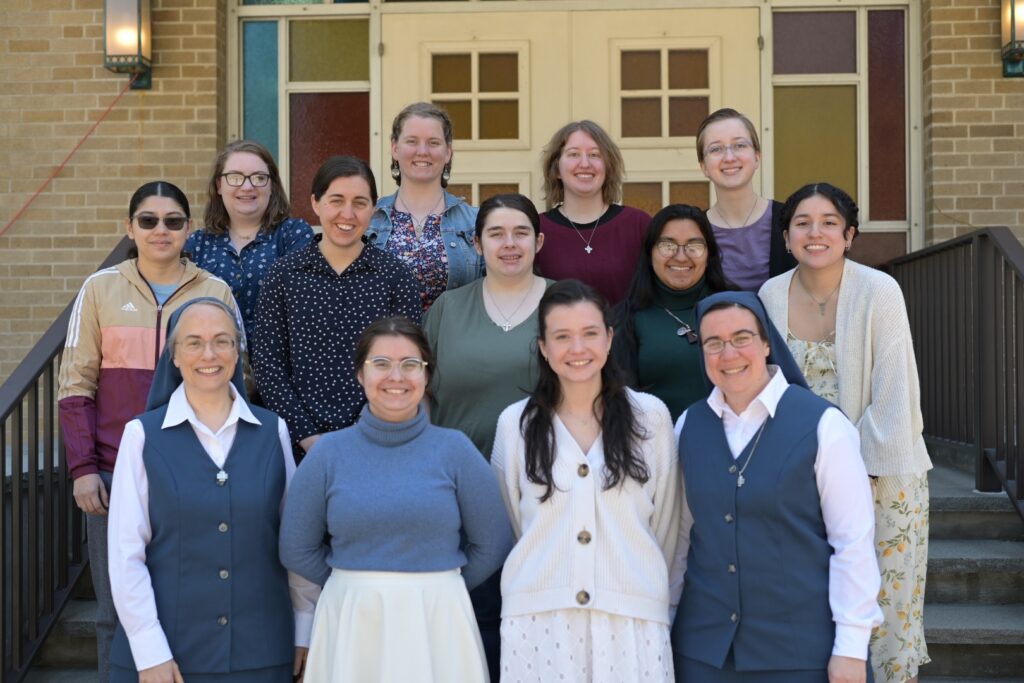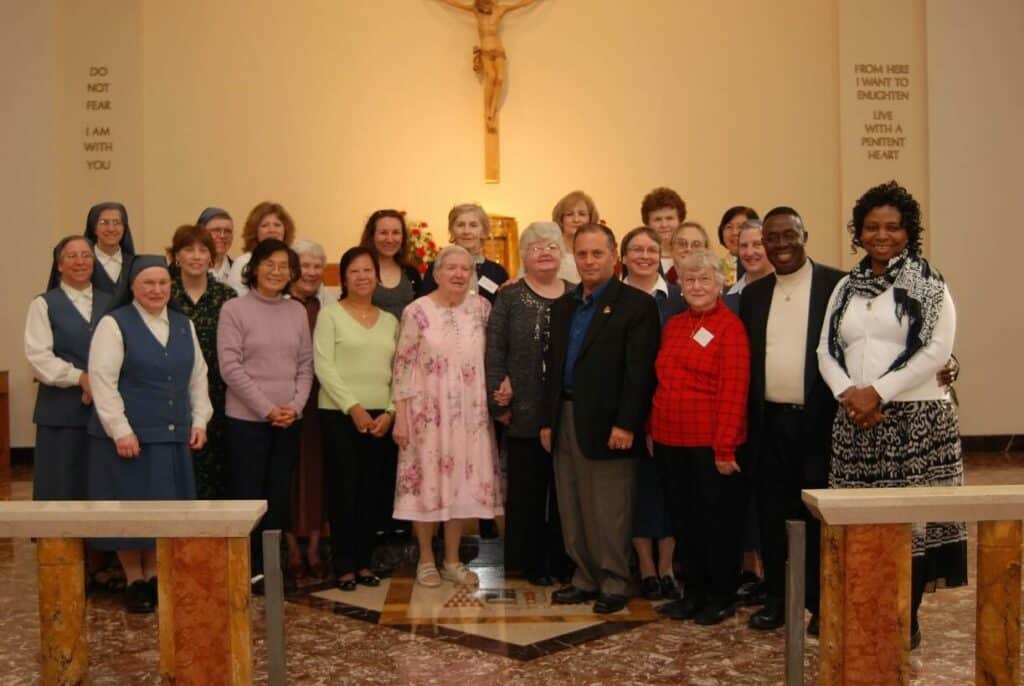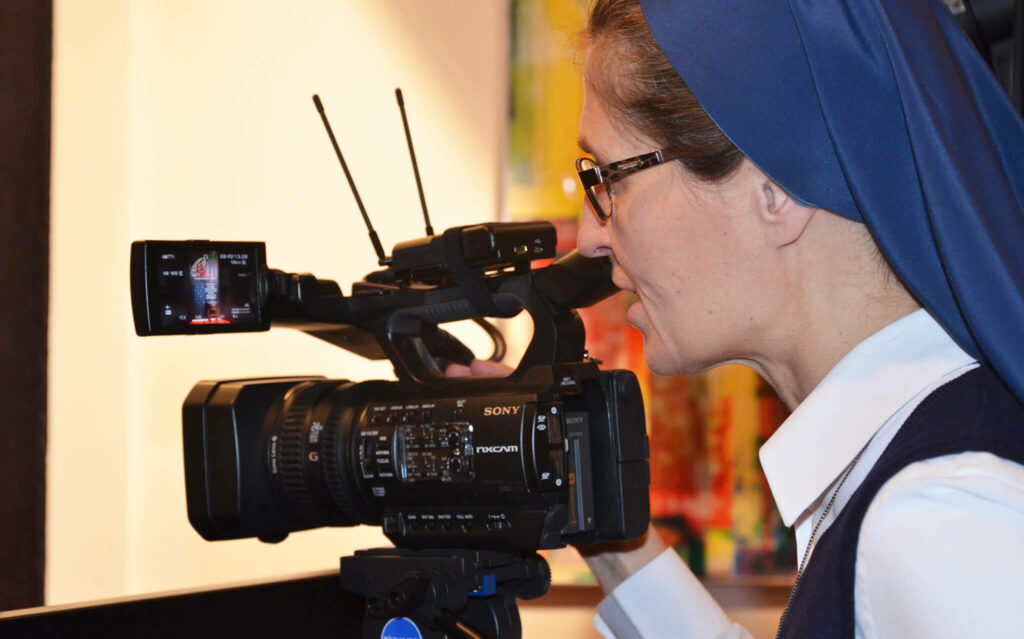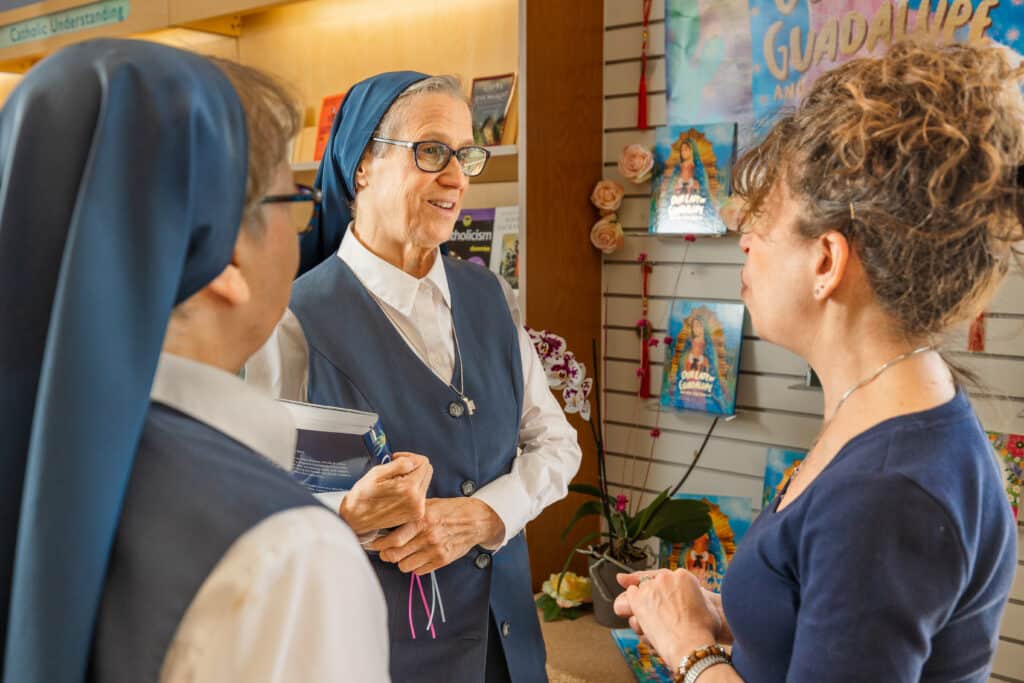“Spirit seeking light and beauty, heart that longs for thy rest, soul that asks understanding…” (Janet Stuart, RSCJ)
The first months of 2020 have been pandemic stricken…and panic-stricken. We’ve been isolated in homes, some lonely, some frustrated, some fearful, but all of us dealing with more silence than we’re probably used to. As I write this, I’m tapping into contemporary saintly spiritual guides who walked their pilgrimage through our noisy world in sacred silence. Spirituality is conscious striving to integrate our life. All of us have an instinct for the divine, and we may be tapping into this more now that the noise and the rushing has stopped. I’ve been asking myself, where does an authentic and instinctual desire for wholeness fit in the midst of a fragmented life? St. Paul indicated the answer when he said, “it is no longer I who live, Christ lives in me” (Gal. 2:20).
My first guide, Blessed James Alberione, founded the Pauline community. At first glance, Father James probably isn’t someone you might consider a “desert guide.” After all, the charism he imparted—employing communication media to spread the Gospel—seems the reverse of silence! But for many years a line from his Beatitudes of the Evangelizers intrigued me. “Blessed are they,” he wrote, “who in the mystic silence of the convent, study ways of the world and on the morrow walk them.” Each day we open bookcenters on busy streets, go out to meet people, record for radio, watch movies for Media Literacy, answer the phone, and engage in social media. When I joined the community we ran very noisy printing presses and book bindery equipment. What was he thinking?
The adjective “mystic” is a clue to Blessed Alberione’s thought. Mysticism, he believed, is for everyone. It’s not an unattainable goal, it is, rather, a natural spiritual development for those who practice faith. As we saw above, he referred to our silent times in the convent as “mystic silence.” For a long time I chuckled at the mention of “silence”—that is, until forty years later, when I finally unlocked the mystery. Silence isn’t something that takes us away from ordinary life; it is found on the path to holiness. Mystic silence is not about not speaking; it is about listening. Listening by opening the ear of our heart as God communicates with us.
Yes, we are called to mysticism, but within a technological communication culture. God chooses to use material reality as conduits of divine grace. We listen to the longing of humanity present in the culture of communication. This sacramental worldview sees the divine in the human, the invisible in the visible, and the grace of God working through ordinary people and objects.
After I’d spent a few years in the convent, Blessed Charles de Foucauld appeared on my radar. Our first meeting was through a book illustrating his Moroccan adventures, subsequent conversion, and life in a desert hermitage. as I read his words, I imagined my novitiate to be a desert experience. I even wrote a poem that began “I wish to kneel at night in desert sands/beneath blissful shadows raise up my hands…”
Novices spend two years practicing silence with everyone but fellow novices, to provide an atmosphere for prayerful study of Scripture, meditation on the Constitutions of the Order, and a deeper consideration of consecrated life. My attraction to Blessed Charles, even as I prepared to officially join my very active community, awakened a desire to live contemplative life in action. Foucauld’s order, founded after his martyrdom, lives religious life in the city alongside its neighbors. Little Brothers and Sisters monasteries and convents are sanctuaries hidden in busy neighborhoods that silently plant seeds of faith, hope, and love at the intersection of people’s lives.
Much later I met Servant of God Catherine Doherty when the priests and brothers of our order, the Society of St. Paul, published her biography and held the book launch for They Called Her the Baroness in our Chicago bookcenter. Chicagoans who knew her came to share stories of her contemporary witness, speaking of Catherine’s simplicity of life and advocation for the Church’s social teaching. Though she had been a baroness, she envisioned living a poustinia of the heart—being a desert dweller in the midst of a busy world. I read Poustinia to dig for the treasures in her life and work. Catherine blazed a trail of holiness following a unique path; she set her sails for the wind of God’s will even when her projects were dismantled. Over time she founded a lay community that shares her vision of poustinia.
Servant of God Madeleine Delbrel was introduced to me through quotes in the Magnificat monthly missalette. One of her books, The Joy of Believing, was on our library shelf. It had never attracted me with its too-plain cover, but once I met Madeleine, she became one of my favorite spiritual authors! Her insights into the how of everyday holiness were fruits of her unique solitude. “At the heart of the most engaged and active of missions,” she wrote, “lies this solitude at the foundation of communion, a solitude that is adoration.” Her first image—active mission—was already very familiar to me even as I was striving for the next, communion.
An interior pilgrimage with these contemporary women and men begins with encounter, prayerful reflection, and conversion. I hope you find a friend among them to accompany you on your pilgrimage through life! Perhaps you have—or will discover—other saintly companions on your pilgrimage.
Here’s just a quick summary of the particular gifts these guides can bring to your pilgrimage:
- Madeline Delbrêl (1904-1964) found that at the heart of communion with God lies a solitude that is adoration. Her gift is an amazement that finds Christ everywhere.
- Charles de Foucauld (1858-1916) was a mystic with a heart burning for God. He sought solitude and silence in the desert while wanting to be the universal brother. His gift is trust that all will be fulfilled in Christ.
- Catherine de Hueck Doherty (1896-1985) popularized the concept of poustinia, dwelling in a hermitage for a day. She developed this to encompass poustinia of the heart. Her gift is an open heart that responds to Christ.
- James Alberione (1884-1971) attended Vatican Council II and lived into the decade that introduced a technological future. While adopting technology for evangelization, he was inspired by St. Paul who “prayed even more in the desert in the years of his preparation for his ministry.” His gift is integration of the whole person in Christ.
What gift can you ask the Holy Spirit to manifest through you after this lockdown is over and we once again walk our city streets?
by Sr. Margaret Charles Kerry, fsp

